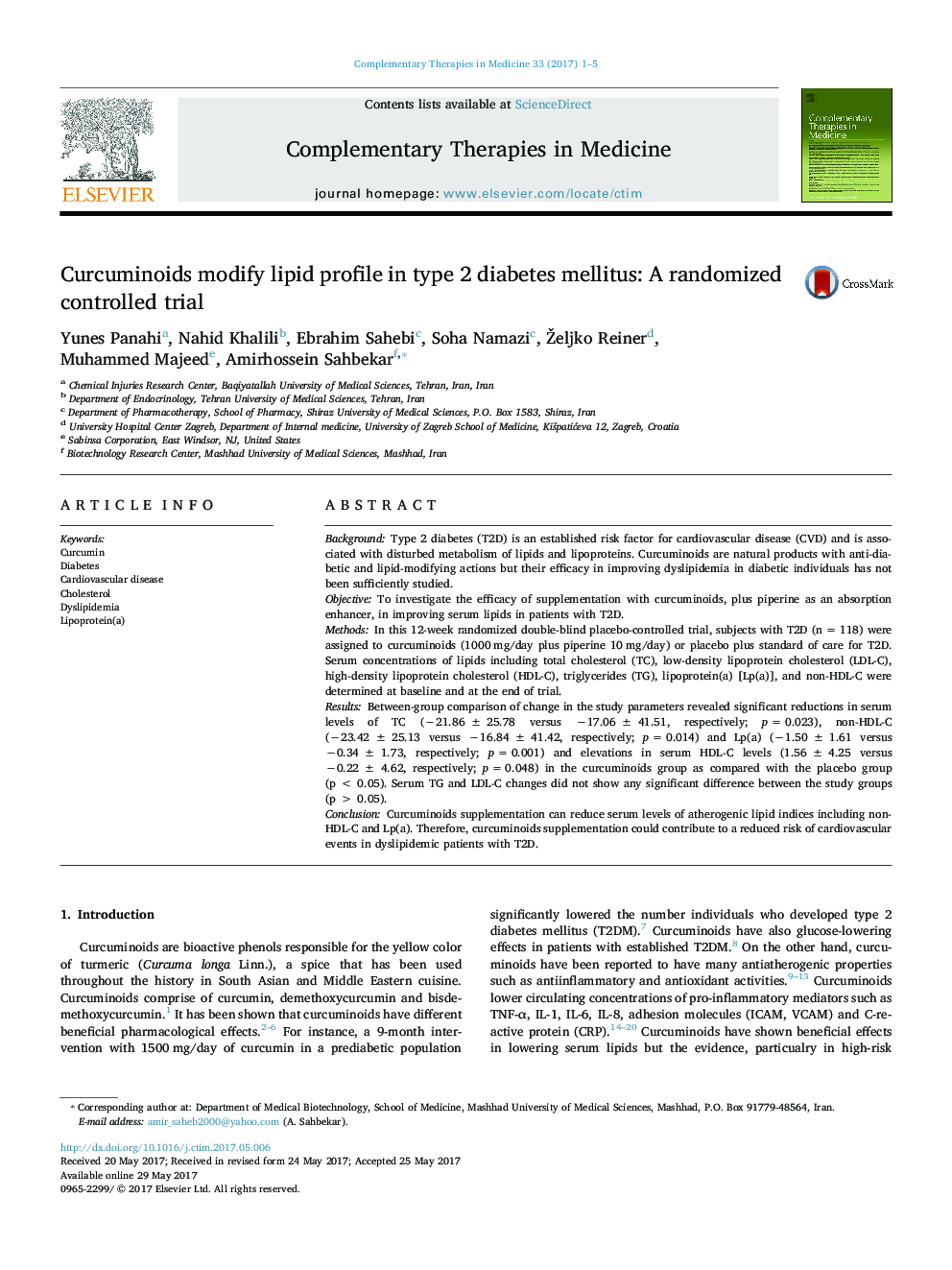| کد مقاله | کد نشریه | سال انتشار | مقاله انگلیسی | نسخه تمام متن |
|---|---|---|---|---|
| 5565201 | 1563201 | 2017 | 5 صفحه PDF | دانلود رایگان |
- Type 2 diabetes is associated with dyslipidemia and elevated cardiovascular risk.
- Curcuminoids are bioactive polyphenolic natural products.
- The impact of curcuminoids on serum lipids in diabetic subjects was investigated.
- Curcuminoids supplementation reduced serum non-HDL-cholesterol and Lp(a).
- Curcuminoids may reduce cardiovascular risk in diabetic subjects.
BackgroundType 2 diabetes (T2D) is an established risk factor for cardiovascular disease (CVD) and is associated with disturbed metabolism of lipids and lipoproteins. Curcuminoids are natural products with anti-diabetic and lipid-modifying actions but their efficacy in improving dyslipidemia in diabetic individuals has not been sufficiently studied.ObjectiveTo investigate the efficacy of supplementation with curcuminoids, plus piperine as an absorption enhancer, in improving serum lipids in patients with T2D.MethodsIn this 12-week randomized double-blind placebo-controlled trial, subjects with T2D (n = 118) were assigned to curcuminoids (1000 mg/day plus piperine 10 mg/day) or placebo plus standard of care for T2D. Serum concentrations of lipids including total cholesterol (TC), low-density lipoprotein cholesterol (LDL-C), high-density lipoprotein cholesterol (HDL-C), triglycerides (TG), lipoprotein(a) [Lp(a)], and non-HDL-C were determined at baseline and at the end of trial.ResultsBetween-group comparison of change in the study parameters revealed significant reductions in serum levels of TC (â21.86 ± 25.78 versus â17.06 ± 41.51, respectively; p = 0.023), non-HDL-C (â23.42 ± 25.13 versus â16.84 ± 41.42, respectively; p = 0.014) and Lp(a) (â1.50 ± 1.61 versus â0.34 ± 1.73, respectively; p = 0.001) and elevations in serum HDL-C levels (1.56 ± 4.25 versus â0.22 ± 4.62, respectively; p = 0.048) in the curcuminoids group as compared with the placebo group (p < 0.05). Serum TG and LDL-C changes did not show any significant difference between the study groups (p > 0.05).ConclusionCurcuminoids supplementation can reduce serum levels of atherogenic lipid indices including non-HDL-C and Lp(a). Therefore, curcuminoids supplementation could contribute to a reduced risk of cardiovascular events in dyslipidemic patients with T2D.
Journal: Complementary Therapies in Medicine - Volume 33, August 2017, Pages 1-5
